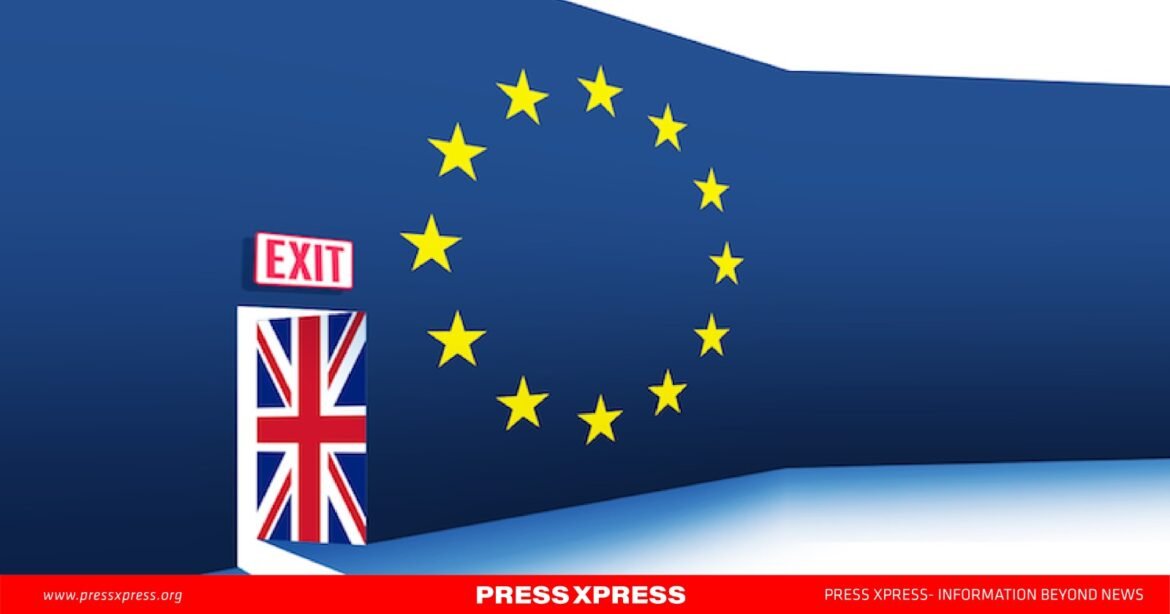The United Kingdom’s energy sector has encountered substantial cost escalations and logistical challenges since Brexit, with Energy UK estimating that inefficient power trade with Europe now adds up to £370 million annually to UK power costs.
Without swift policy adjustments, Industry body Energy UK predicts that these post-Brexit inefficiencies are likely to become entrenched, pushing cumulative energy costs up to £10 billion by 2030, casting a shadow over the UK’s energy market and consumer prices.
Increased Trade Costs Due to Market Isolation
Before Brexit, the UK was integrated into the EU’s “single day-ahead coupling” system, a mechanism that allowed for seamless cross-border electricity trading at optimized rates. This arrangement provided British consumers with greater price stability and access to lower-cost energy. However, since Brexit, the shift to “explicit trading” has led to significant cost increases as British power suppliers no longer benefit from the EU’s market efficiencies. Research by industry analysts projects that these less efficient trading structures raised interconnector costs by approximately £500 million over the current parliamentary term, translating into higher consumer prices and limiting competitive access to energy imports.
The UK’s reliance on undersea interconnectors—critical links to countries like France, Ireland, and the Netherlands—has made it particularly vulnerable to these inefficiencies. These interconnectors have historically helped stabilize energy prices, but Brexit-driven changes are now placing upward pressure on costs and raising concerns about energy reliability.
According to Energy UK’s deputy director, Kisha Couchman, Brexit has left the UK with “very inefficient trading arrangements,” a factor now reflected in higher consumer costs.
Long-Term Financial Implications and Carbon Tax Concerns
The European Union’s Carbon Border Adjustment Mechanism (CBAM), set to begin in 2026, presents additional challenges for the UK’s energy trade. CBAM will require carbon-intensive goods exported to Europe to meet EU carbon pricing standards, which may impose substantial costs on UK exports to the EU. For the UK’s power sector, CBAM is projected to add up to £800 million annually to trade expenses, with an additional strain on sectors linked to carbon-intensive industries.
Analysts have cautioned that these added costs could undermine the competitiveness of UK energy exports and dissuade investors from supporting renewable energy projects aimed at export. Forecasts also suggest that by 2040, renewables capacity may need to be curtailed by as much as 8 GW per year due to CBAM, representing foregone export revenues worth billions. The lower carbon price within the UK Emissions Trading Scheme (ETS), as compared to the EU’s, could also contribute to reduced Treasury revenues, with estimates indicating a loss of up to £8 billion over the next parliamentary term if the schemes remain unaligned.

Moreover, a recent forecast indicates that the UK may become a net exporter of electricity by 2030. While this shift could be beneficial for the UK economy, the additional carbon tax barriers would complicate these exports, ultimately hindering the UK’s ability to fully capitalize on its energy potential. The loss of integrated trading with the EU could make it harder for the UK to participate effectively in cross-border energy exchanges, just as both the UK and EU push towards ambitious decarbonization goals by 2050.
Calls for a Closer Relationship with the EU
Energy UK has proposed a solution: re-establishing a unified trading relationship with the EU. The organization argues that a closer energy alliance would not only lower consumer costs in the UK but would also foster a more robust and cooperative decarbonization effort. This approach aligns with shared interests between the UK and EU, as both face similar challenges in combating climate change, ensuring energy security, and stabilizing costs in a turbulent global economy.
In light of these challenges, Labour leader Keir Starmer’s recent discussions with European Commission President Ursula von der Leyen have rekindled hopes of closer energy cooperation. Starmer, seeking to “reset” UK-EU relations, has indicated a willingness to consider deeper collaborations that could include energy policy alignment. According to a joint statement from their meeting, both leaders acknowledged the need to address “fundamental challenges to shared values,” including economic instability, geopolitical shifts, and rising energy costs.
The Consumer Perspective
Brexit’s impact on the UK energy market is already being felt by consumers. Wholesale energy costs have risen by an estimated 0.25% to 0.7% as a result of the current trading arrangements, with a reported £90 million to £250 million added to costs in 2021 alone. As inflation and high energy prices continue to pressure UK households, a more efficient trading structure could offer much-needed relief.

The cost of inaction is steep. Without adjustments, the Energy UK report predicts up to £10 billion in cumulative costs by 2030, driven by high energy bills and decreased Treasury revenue. These rising costs highlight the urgency of re-examining trade relationships to prevent further strain on consumers.
Towards a Sustainable Solution
The situation underscores the importance of cross-border cooperation on energy, particularly as both the UK and EU work towards achieving net-zero carbon emissions by mid-century. A return to more integrated energy trading could enable both regions to benefit from decarbonization incentives and facilitate more stable energy pricing. Additionally, joint efforts could foster resilience against global energy market disruptions, which have become increasingly common due to factors like geopolitical tensions and climate volatility.
Ultimately, while Brexit’s impact on UK energy pricing is clear, a recalibrated approach with the EU offers a pathway to mitigate these costs. By prioritizing energy cooperation within its broader reset strategy, the UK could enhance its energy security, lower consumer prices, and further its decarbonization goals.


